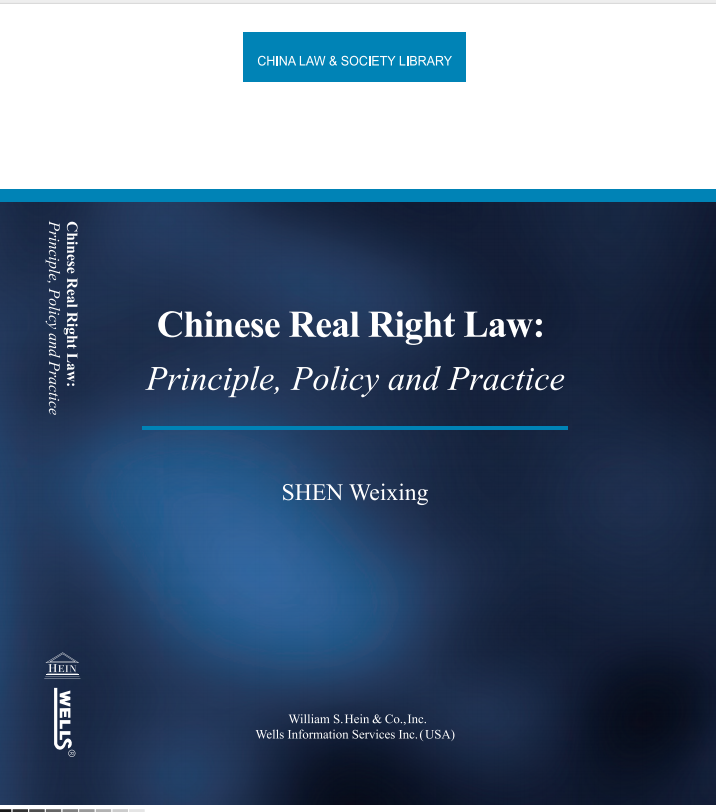
On January 1, 2021, the first law to be named as “code”—the Civil Code of the People’s Republic of China (hereinafter “Civil Code”) came into force. The enactment and enforcement of the Civil Code is a significant event in the process of modernization of national governance capacity and governance system in China, and will have a far-reaching impact on promoting the construction of the rule of law in China, better protecting people’s rights and interests, and encouraging the development of the socialist market economy.
Book Two of the Civil Code (hereinafter referred to as “the book of real rights”) focuses on the topic of real rights, which regulates general provisions, the ownership, rights of usufruct, security interests and possession. It is essential to include the book of real rights in the Civil Code because it regulates the social and economic life of people by setting up the systems of ownership, usufruct and security rights so as to establish clear property rights and encourage the efficient use of resources Importantly, its specific provisions aim at dealing with the commercial or residential buildings of urban residents and their proprietary relationships, the rights of usufruct of rural land for farmers’contractual management, the financing operations of enterprises and the protection of banks’ financial claims. In a word, it is a legal assurance that people’s basic necessities would be met.
Compared to the Real Right Law (2007), the book of real rights is more extensive in terms of content, and certain particular systems have been refined and improved in accordance with the development of the society, rendering the protection of real rights to become relatively more comprehensive. For example, Article 219 of the Civil Code adds that “an interested person may not disclose or illegally use the registered information of a right holder’s immovable property.” This article applies to both the traditional society and the digital society. In addition, Paragraph 3, Article 410 of the Civil Code regulates the method of pricing during the appraisal or sale of the mortgaged property and Article 440 regulates the pledge of after-acquired accounts receivables, reflecting the social necessity to encourage the growth of a stable economic environment.
However, the enactment of the Civil Code is the first significant step in building the complete legal system. It is also essential to interpret the book of real rights properly so that people can easily understand the basics of real rights in social life. Therefore, this book aims to explain the concept and categories of real right in China, which would enable the readers to gain an in-depth understanding of the theoretical and practical knowledge of real rights through legislative history, theoretical opinions, and typical cases. For example, this book provides a systematic interpretation of the Articles of the book of real rights by adding discussions on the exercise of right of pre-emption, accession and the right of habitation, etc., which are newly added to the Civil Code. Thus, readers may benefit from gaining a systematic understanding of the real rights system in China. What’s more, this book also aims to provide readers and researchers from across the world with a method to understand how China’s real rights system operates.
Finally, I would like to express my sincere gratitude to Huiwen Jiang, Danyang Guo, Tsungtang Lee, Wenqing Jiang, Vicky Liu (Tsinghua University), James Jackson (Harvard University), Han Lee (Temple), Conita Leung, who have provided support and edited the various revised versions of this book. I am grateful for their help.




